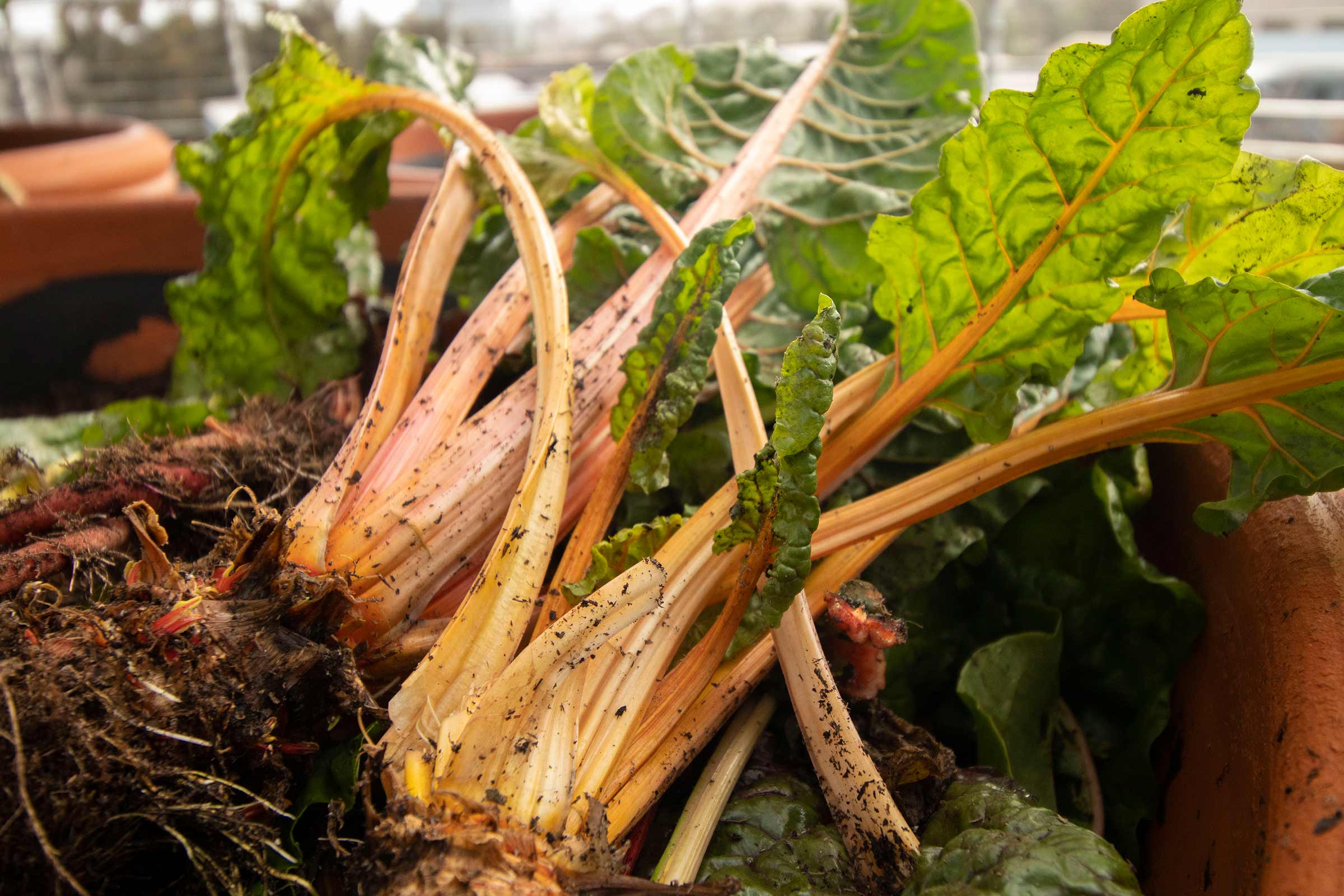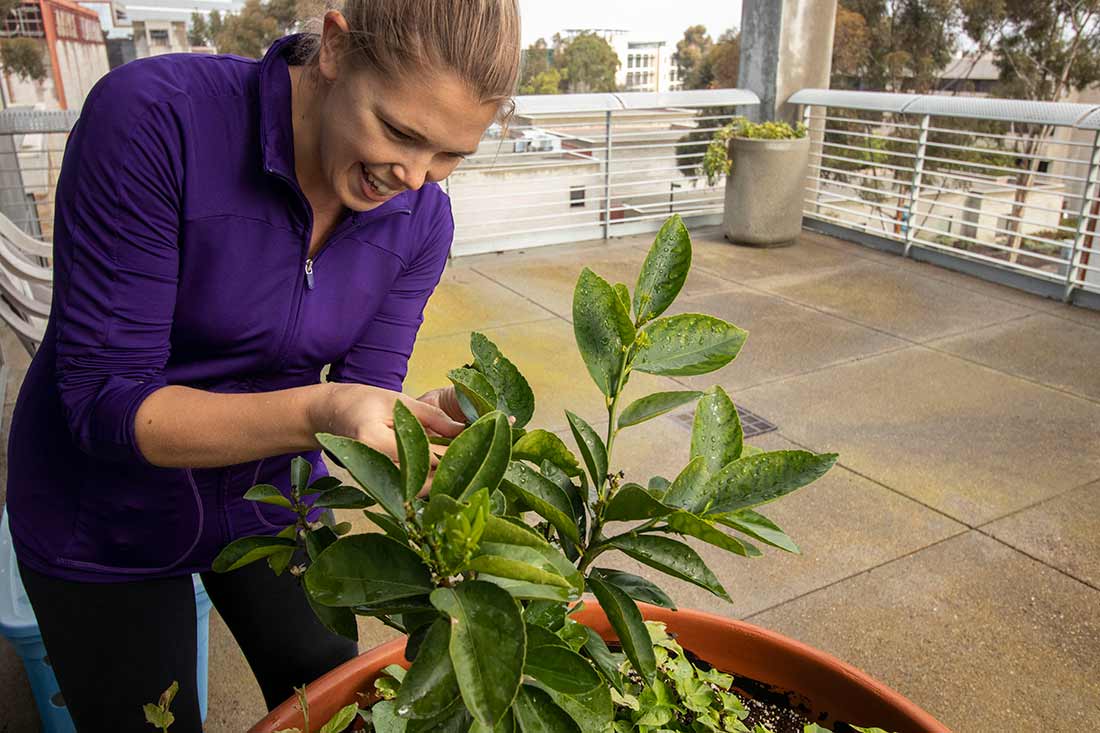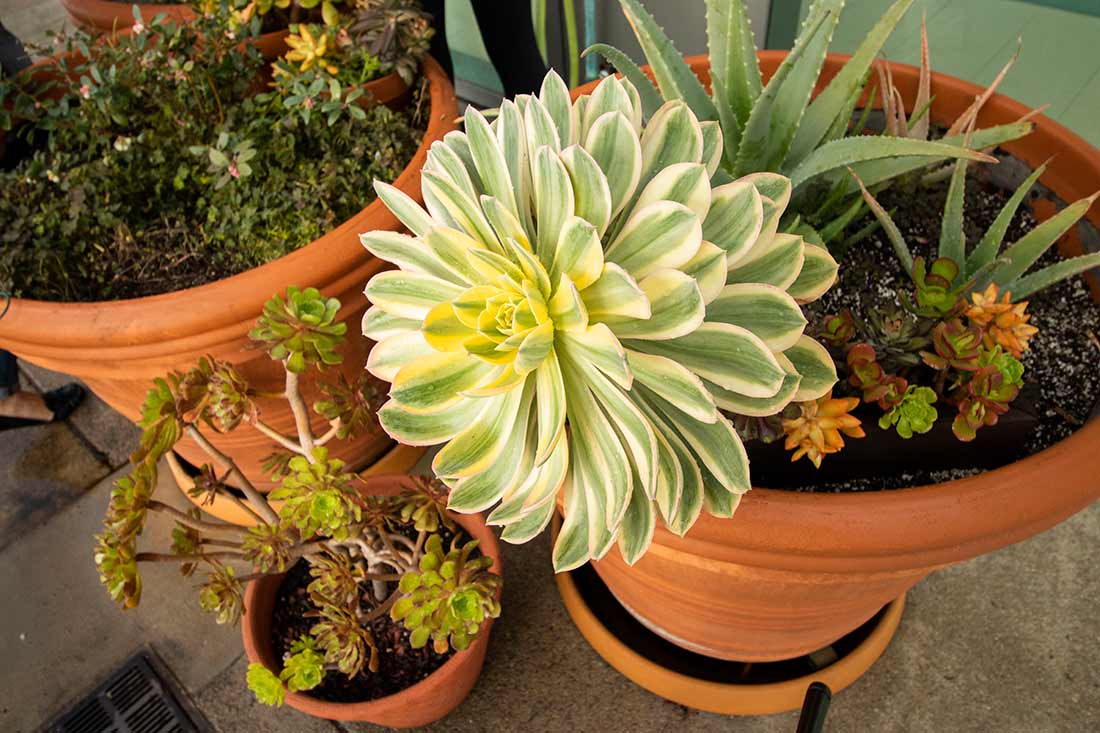By:
- Cynthia Dillon
Published Date
By:
- Cynthia Dillon
Share This:
Galaxy Gardener
Graduate student pursuing a Ph.D. in observational astrophysics contributes to sustainability, learns some chemistry while gardening on campus

Chard. Photos by Michelle Fredricks/UC San Diego Physical Sciences
Angela Berti casts her eyes to the stars and her hands in the dirt at UC San Diego. It turns out the fifth-year Ph.D. candidate in astrophysics, who focuses on how galaxies and dark matter halos co-evolve throughout cosmic time, has a green thumb. She uses the skill to voluntarily tend a pop-up garden atop the Science and Engineering Research Facility (SERF) on campus.
A labor of personal interest, tending the rooftop garden stems from Berti’s mother, a master gardener who encouraged her daughter to garden when she was growing up. When the doctoral student moved to San Diego for school, she cultivated her own patch of plants in graduate housing. That plot became unavailable at about the same time one of the physics professors encouraged students to take up gardening in the space outside of the Center for Astrophysics and Space Sciences in SERF.

Angela Berti tending one of the plants.
“There were planters in clusters and an auto-watering system that was original to the building,” said Berti, adding that they needed some attention.
She took on the task two years ago with the help of facilities management staff. When concrete trash bins were being discarded for more eco-friendly versions around campus, Berti asked for the stony receptacles, which she converted into planters. Now, they’re filled with a wide assortment of plants including calamondin, plumeria, kale, chard, peppers, figs, tomatoes, blueberries, carrots, sweet potatoes, peas and rosemary. She also tends a succulent section, which grows with anonymous donations from students who find the not-so-secret garden.
“It has also been fantastic for the rest of us with offices nearby to get to walk past her plants every day and watch the vegetables grow; having that greenery and a reminder of the rest of life beyond work has been really fun,” said Division of Physical Sciences Associate Dean for EDI and Professor of Physics Alison Coil.
Berti admittedly applies self-taught chemistry to her gardening, testing the pH balance of soil, calculating the appropriate amounts of macronutrients—nitrogen, phosphorous and potassium—for the plants, and promoting leaf growth. She spends about 2 ½ hours each week in the garden, hand-watering, pruning, weeding and re-planting. All the gardening tools she uses are stored onsite, and she receives support from the Sustainability Resource Center and the UC Master Gardener Program. Gardening, itself, also provides an occasional break from academics.
Coil noted that Berti, one of her graduate students, clearly finds joy in gardening. “When students are happier in their lives, they are happier as students and are happier doing research.”

Specimens from the succulent section of the garden.
As a scientist, Berti naturally experiments with processes like composing and growing new specimens, acknowledging that not every experiment will be a success. For example, she finally gave up on eggplant and cantaloupe after many fruitless months. But while her acuity for the cosmos increases, so does her understanding of the acidity of soil.
“People see it as unusual, but since I can’t really actively nurture a pet as a Ph.D. student, I can do plants, and San Diego is the ideal place to grow things,” Berti said, adding that the bugs aren’t bad up on the roof either. “It’s a little bit of an oasis.”
Share This:
You May Also Like
Stay in the Know
Keep up with all the latest from UC San Diego. Subscribe to the newsletter today.



